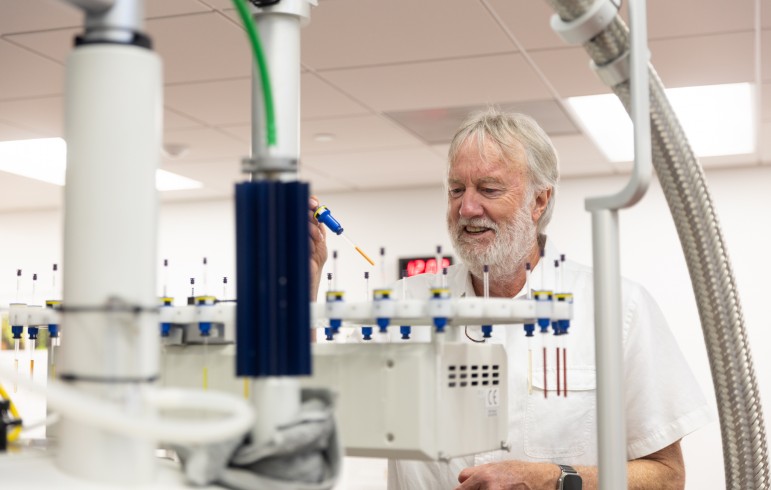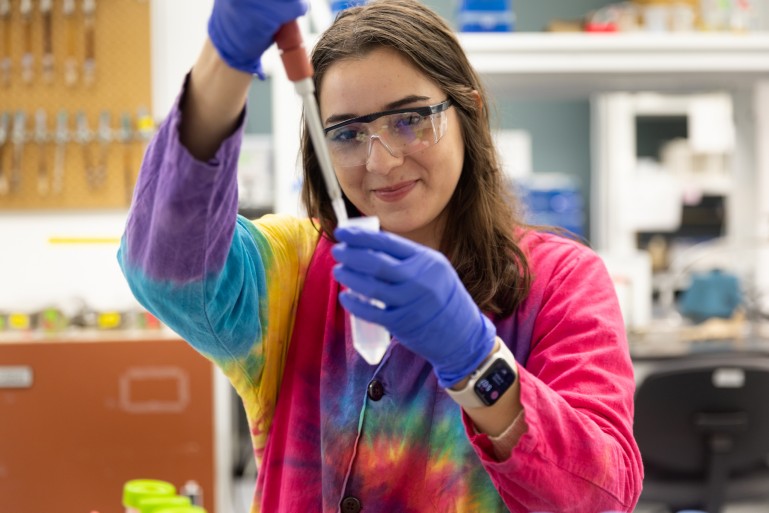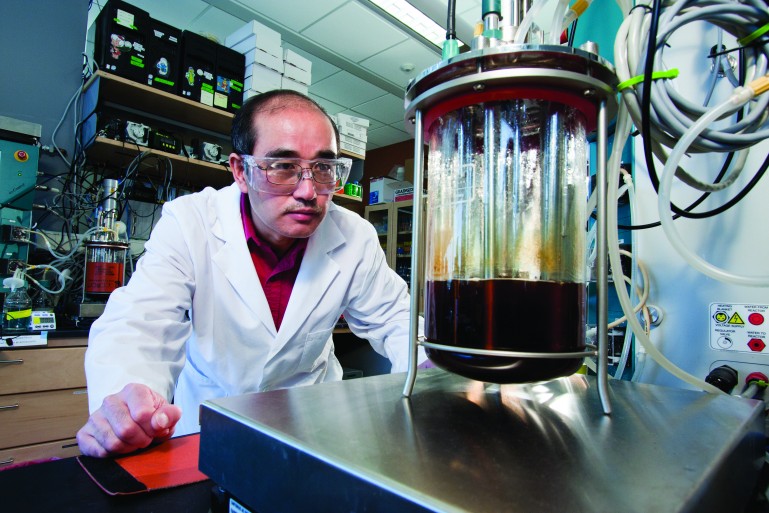The Wisconsin Energy Institute will explore the potential economic benefits, environmental impacts, and sustainability implications of Wisconsin’s emerging bioeconomy at a free online event on Wednesday, Oct. 21, from 9 a.m.–12 p.m.
It’s a sweltering August day in 2019.
In 1909, the German chemist Fritz Haber sparked an agricultural revolution. Using enormous pressures and high temperatures, he had learned how to efficiently transform nitrogen, so abundant in the air, into ammonia. Artificial fertilizer was born.
An international research collaboration led by VIB-UGent Professor Wout Boerjan, and involving the U.S. Department of Energy Great Lakes Bioenergy Research Center, has opened up new possibilities for stably fine-tuning the amount of lignin in poplar by applying CRISPR/Cas9 technology.
Recently converted farmlands aren’t as productive as traditional food cropping systems, but cultivating bioenergy feedstocks could provide alternative revenue sources for farmers, reduced competition with food production, and better maintenance of water quality due to soil fixation by root systems.
University of Wisconsin-Madison engineers are leading an extensive research effort that aims to enable innovative propulsion technologies for U.S. Army unmanned aircraft systems.
MADISON — A national research initiative announced today will place the University of Wisconsin–Madison at the forefront of a revolution in imaging fostered by cryo-electron microscopy and cryo-electron tomography — technologies that can illuminate life at the atomic scale.



